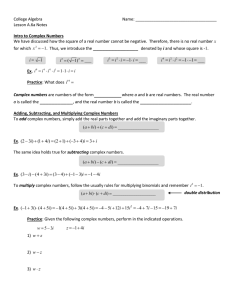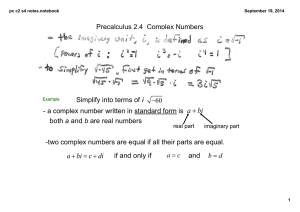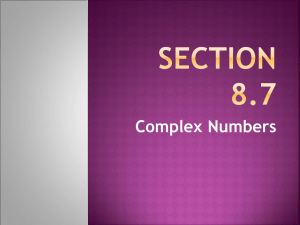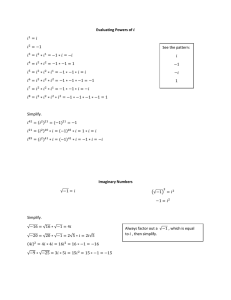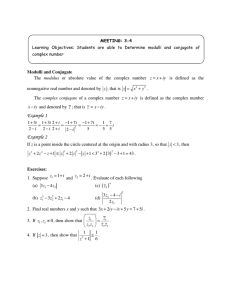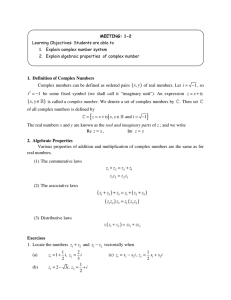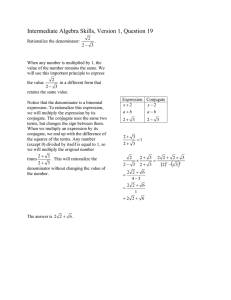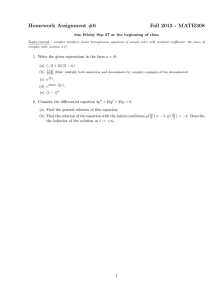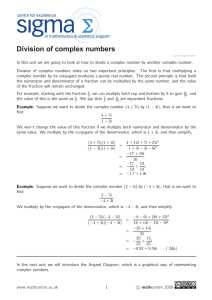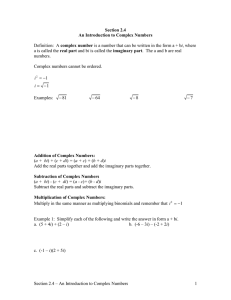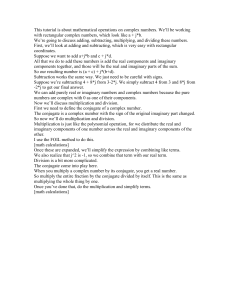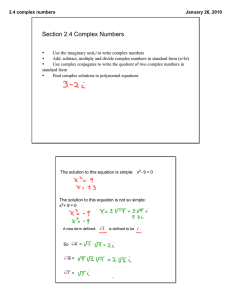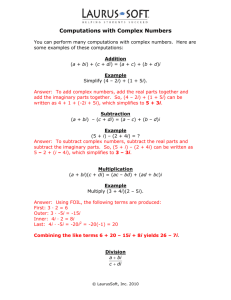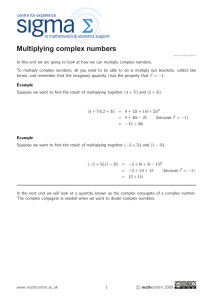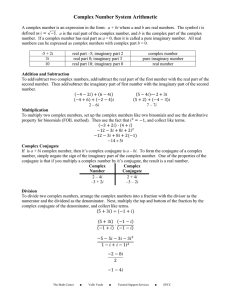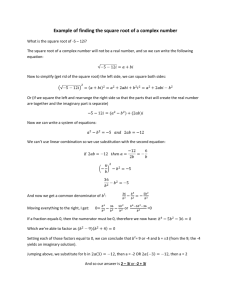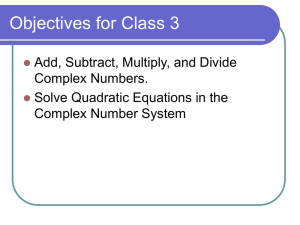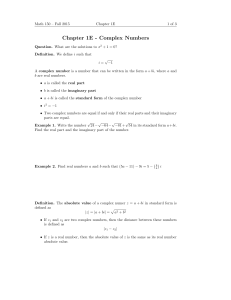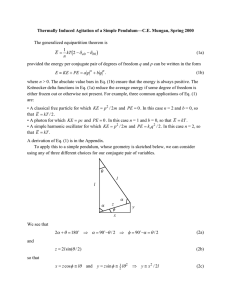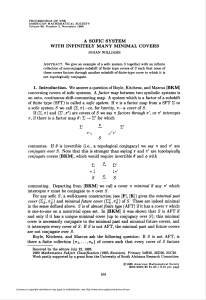Document 10818838
advertisement
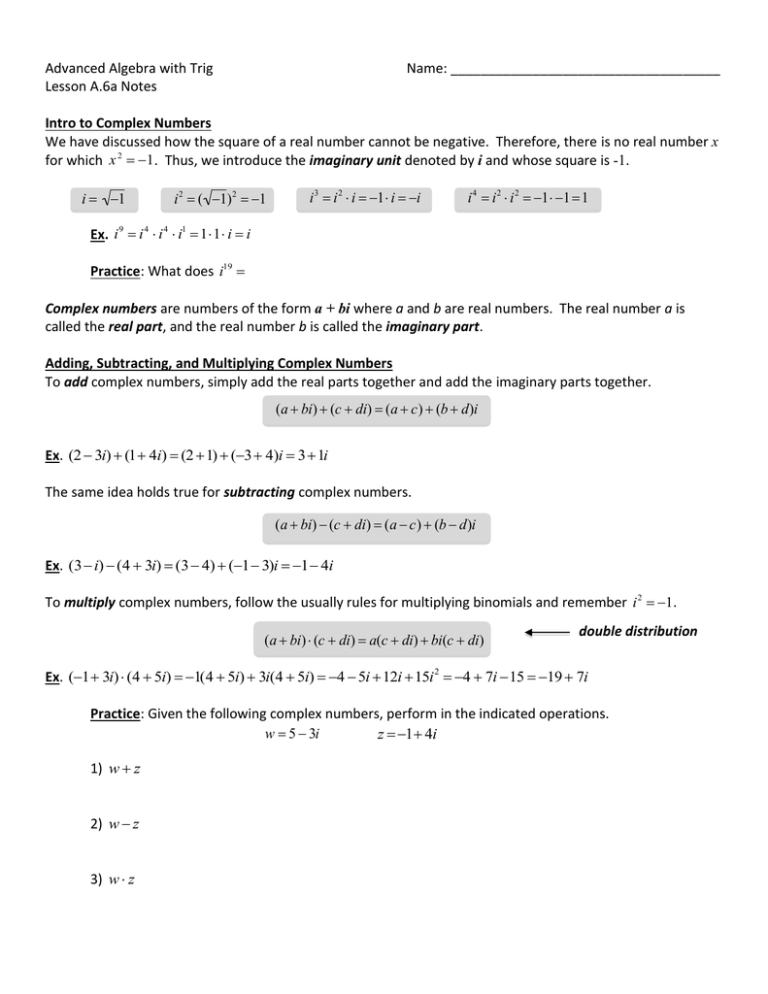
Advanced Algebra with Trig Lesson A.6a Notes Name: ____________________________________ Intro to Complex Numbers We have discussed how the square of a real number cannot be negative. Therefore, there is no real number x for which x 2 1. Thus, we introduce the imaginary unit denoted by i and whose square is -1. i 1 i 2 ( 1) 2 1 i 3 i 2 i 1 i i Ex. i 9 i 4 i 4 i1 11 i i Practice: What does i19 i 4 i 2 i 2 1 1 1 Complex numbers are numbers of the form a + bi where a and b are real numbers. The real number a is called the real part, and the real number b is called the imaginary part. Adding, Subtracting, and Multiplying Complex Numbers To add complex numbers, simply add the real parts together and add the imaginary parts together. (a bi) (c di) (a c) (b d)i Ex. (2 3i) (1 4i) (2 1) (3 4)i 31i The same idea holds true for subtracting complex numbers. (a bi) (c di) (a c) (b d)i Ex. (3 i) (4 3i) (3 4) (1 3)i 1 4i To multiply complex numbers, follow the usually rules for multiplying binomials and remember i 2 1. (a bi) (c di) a(c di) bi(c di) double distribution Ex. (1 3i) (4 5i) 1(4 5i) 3i(4 5i) 4 5i 12i 15i 2 4 7i 15 19 7i Practice: Given the following complex numbers, perform in the indicated operations. w 5 3i z 1 4i 1) w z 2) w z 3) w z Advanced Algebra with Trig Lesson A.6a Notes (continued) Conjugates of Complex Numbers If z a bi is a complex number, then its conjugate, denoted z , is defined as z a bi a bi Ex. If z 2 3i then its conjugate is z 2 3i a complex numbers with its conjugate! Let’s see what happens if we multiply abi b2i 2 a2 b2 zz (a bi)(a bi) a2 abi zz a2 b2 Or for short Ex. (2 3i)(2 3i) 4 6i 6i 9i 2 4 9 13 Or using formula (2 3i)(2 3i) 22 32 4 9 13 Practice. Find the conjugate of the following complex numbers. Then multiply by the conjugate. 1) z 3 4i 2) z 1 8i 3) z 2i Dividing Complex Numbers divide complex numbers, we can multiply the numerator and denominator by the conjugate of the To denominator (a one in disguise). 2 3i (4 3i) 8 6i 12i 9i 2 8 6i 9 17 6i 17 6 i Ex. 4 3i (4 3i) 4 2 (3) 2 16 9 25 25 25 Practice: 3 i 2 4i Let’s Practice What We’ve Learned! Given the following complex numbers, perform the indicated operations. w 2 3i 1) w z 2) w z 3) w z 4) w z z 5 2i
